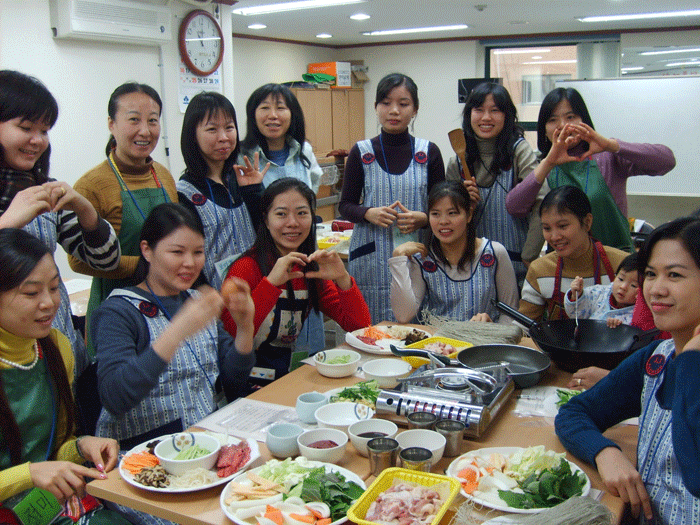“I gave up my baby to help him live because with me he’d die”
Fifteen-year-old Amara Okonju (not her real name) outstayed her visa in Korea, and became pregnant after an involuntary encounter with a man in Seoul. She gave birth to a baby boy and tried to raise him on her own, but it was simply impossible. She could not even feed herself?let alone the baby. One day, she made a daring decision, got in a taxi cab with the baby, left it there, and ran. However, she was not so fast, and was apprehended by police. With tears in her eyes, she pleaded, “I have to give up the baby so that he could live because with me he would die.”
Amara was an illegal immigrant woman, there was no welfare facility that would accept such a baby and there was nobody Amara could turn to for help.
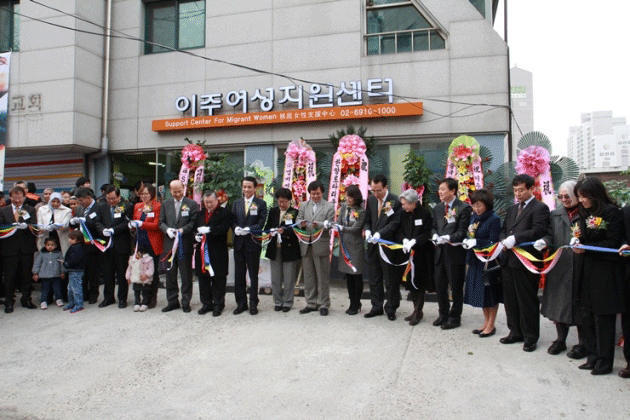
“This is only one example and there many others,” said President Kim Eun-suk of the Support Center for Migrant Women of Global Sarang Nanum (Love Sharing) at a recent interview with The Korea Post at her office in Oryu-dong on the southwestern outskirts of Seoul.
According to the Korea Immigration Service, Korea now has a total of over 1.84 million foreign immigrants in Korea, of whom 203,434 persons are illegal residents (as of end of last year). A substantial number of them are women and they are fully exposed to the danger of unwanted pregnancy due to the weaknesses inherent in their illegal status in Korea?like Amara.
In the case of women coming to Korea in connection with marriage with Korean men are prone to all kinds of hazards and dangers posed by some dishonest (and often unlicensed) marriage brokers. Even teenagers fall a prey to them and become pregnant against their will as in the case of Amara from West Africa.
Professor Hyun-sil Kim of Daegu Hanny University in Korea states: “Women migrating through international marriage are known to face various difficulties due to their migration. Some important obstacles that women migrants face in Korea are cultural differences in daily lifestyle, language, food, health care services, cultural assumptions, gender structure, family relationships, expected roles within family, interpersonal relationships and more.” Then she said that the dire plights of married migrant women include commercialization of international marriage, false information regarding the spouses, family abuse, insecure nationality, economic difficulty and unemployment, racial prejudice, and cultural maladjustment. Professor Kim suggests the necessity of programs and policies for the improvement of married migrant women's well-being based on women's health and family nursing dimensions.
Against this backdrop was born the Support Center for Migrant Women on Jan. 14 this year as one of the important organizations of Global Sarang Nanum which was founded by Pastor Kim Hae-sung in 1992.
According President Kim, many young ethnic Korean women in China enter South Korea seeking a better life but fall a victim to the ‘wolves’ here and have an unwanted baby. Mindful of this tragic situation, Pastor Kim made a baby hatch to save the abandoned babies, but the district government authorities ordered it closed down as it was ‘against the law.’
President Kim called Pastor Kim ‘an energetic person’ who would never give in. He established the Support Center for Migrant Women and asked President Kim to take charge of the Center.
The job involved an extremely hard work and, at that, it was an ‘Eul party’ work posing a striking contrast with her career where she was constantly a ‘Gap party.’
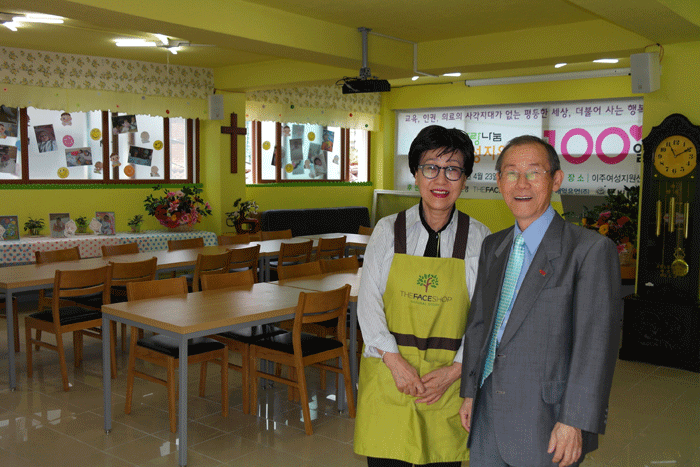
“I accepted the offer immediately,” said President Kim. “I really like the job and it is my fixed conviction that I made the right decision.”
When a person has an interview with a media, normally he/she dresses up to look nice in the picture. President Kim wore a working apron. To her, work was more important than how she would look like in the photo.
And when she held the babies in her arms as the reporters of The Korea Post toured the facilities of the Center, it was clear to everyone that she was just like their real mothers.
A woman reporter of The Korea Post, who herself was a mother of two children, said, “We mothers know from the look of the baby if the baby and the holder love each other.”
Excerpts from the interview follow:
Question: Would you introduce what you do at the Support Center for Migrant Women?
Answer: All men are born equal and entitled to a life with respect and dignity regardless of difference in race and nationality, and predicated on this belief was born Global Sarang Nanum (Love Sharing) in 1992 as a leading organization supporting migrants in Korea. Since then we have been working for the promotion of rights and welfare of foreign workers in Korea, multicultural families, Korean diaspora from China and various other migrants in Korea.
We are operating and managing many charity establishments such as Korea Supporting Center for Foreign Workers, Migrants Shelters, Global School, Daycare Centers, Children’s Village, After-school Community Center, Group Homes (orphanages), and Global Cooperative.
On 14th January this year, the Support Center for Migrant Women was opened. Its main purpose is to help the migrant women and marriage migrants in women matters such as prenatal, delivery and child rearing support.
Most of them migrant woman are in a helpless situation. The Center provides them with all kinds of support and assistance in living and caring, including shelter, food, prenatal check-up, pregnancy health-care, assistance in child birth, baby-care and medical attention as well.
We also provide them with vocational training, language classes and legal consulting. You might wonder how much they should pay for all this care and support services. The services are provided all completely free of charge.
The unfortunate migrant women are in need of so many things and their problems are taken care by the Center absolutely with no payment burden to them.
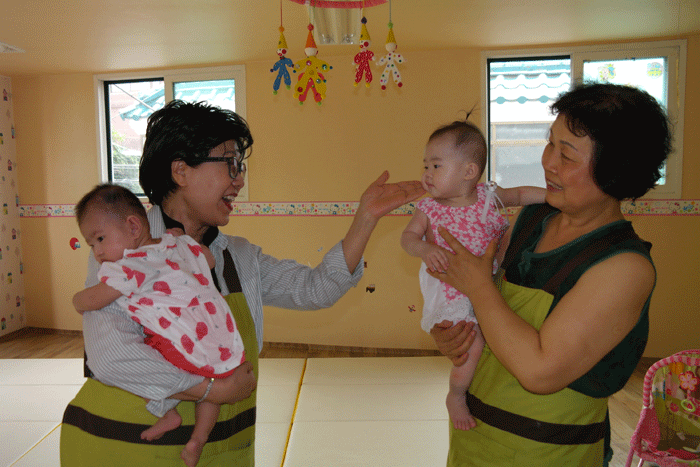
The Center receives no subsidy or any other form of financial support or assistance from the government. The Center is operated entirely on its own budget supplemented by philanthropic donors. This is why the budget is always tight and we are grateful when we have new donors.
Q: Is there anything that the migrant women and foreign workers in Korea wish the Korean government would do for them?
A: Most of the migrant women who are in Korea are marriage migrants and among them we find a few who seek a refugee status in Korea. The problem comes when they become pregnant and the baby is not wanted. Then they find themselves in such a helpless condition. The situation becomes worse when the woman seeks a refugee status in Korea as her new born baby would have no record of any nationality. It is because of the principle of personal jurisdiction in Korea. They want to have a refugee status in Korea so that they can work and live here.
I am wondering if the Korean government has any special plan to give the Korean-born baby of the migrant mother Korean nationality even if the mother does not have a refugee status.
There is another area where the government can help us. We need an adequate number of Korean-language teachers so that they could provide the migrant woman a one-to-one Korean-language training.
Q: What is the best attitude that the Korean people and government should take towards the migrant women and workers in Korea?
A: Many of them come from a country where they did not have very comfortable surroundings and therefore have already experienced emotional sufferings. We should try to comfort them and help them with a warm, caring and understanding mind. Even if we find much difference in the way of thinking and mode of living of the migrant women, we should try to concede as much as we can and try to understand their situation.
Q: What, if any, do you think they have they would want their ambassadors and embassies in Seoul do for them?
A: I think that it would be very nice if the embassies would have an office entrusted with the responsibility to look after them and provide them with support and assistance.
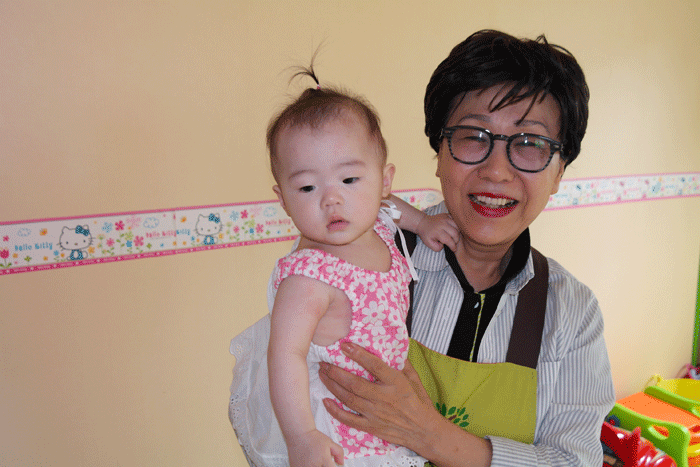
Q: Some Koreans might think that the foreign workers in Korea are moving them out of their job. What is your view on this?
A: It might be true in some instances. However, it appears to me that the foreign workers are doing jobs that Korean workers would not want to do.
Q: President Kim, you have a number of important posts in addition to the present job. Would you like to introduce them to our readers?
A: In the past when I was a professional business manager in active duty, it was how to give benefit to welfare-charity organizations. Now I am trying to find ways to provide the best volunteer service.
Volunteer service was only a part of my life in the past. Now it is my full time job. I used to be an entrepreneur but now I am a manager of this charity center, the Support Center for Migrant Women.
I believe that the best way to help the migrant women is not so much to give things to them as to help them develop a sense of self-reliance and help them eventually to stand on their own feet.
It is my ardent hope that the babies of the migrant women will have good education here, someday all become well-established persons, go back to their mother’s country and develop a good relationship with Korea as multi-lingual specialists or in other capacity. I have a dream that the grown-up babies of the migrant women will not forget the place where they were born and grew up at a lovely nest in their early lives in Korea. To help them grow up as a healthy and good person and become a good friend of Korea is our responsibility.
Q: How do you manage the language barrier when you look after the migrant women from so many different countries?
A: I speak the English language and so do some of our other members. Chinese language is no problem because I graduated Peking China University. As for the other languages, we get support and assistance from the 15-Language Translation Service Center of the MBC TV, where I am a member of the Board of Directors.
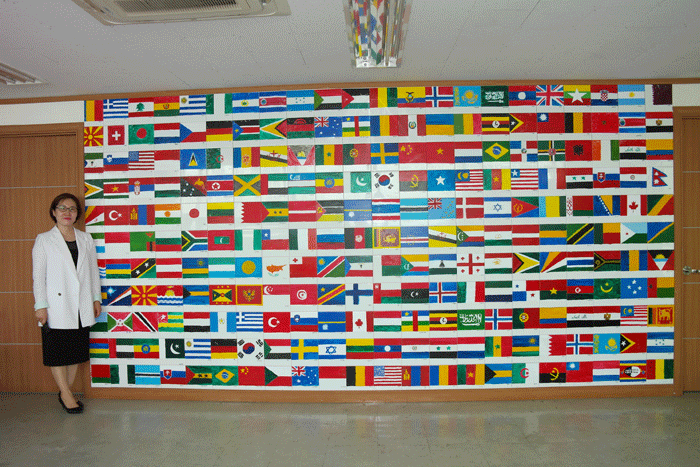
About President Kim:
President Kim Eun-suk of the Support Center for Migrant Women of Global Sarang Nanum was originally a successful business CEO, a donor to the charity, as was briefly mentioned earlier. However, now she is a donee in charge of a charity organization which she runs with donations from individuals and business and other organizations.
In a good sense of humor, he said, “I used to be Gap (甲, superior, giving) party but now I am Eul (乙, inferior, receiving) party.”
She was Gap party alright, graduating from Korea’s most prestigious Seoul National University, earning an MBA from the equally famed Korea University in Seoul and studying abroad at Peking University and University of Pennsylvania in the United States. Then she made herself a very successful entrepreneur heading GW Grace Corp in the US, Golden Bridge Inc., Gi Consulting Corp. and various other business and public organizations, where she gave a lot to the charity. Details of her resume follow:
Education:-
March 1961-Feb. 1965: Seoul National University College of Fine Arts
June 2002-Feb. 2005: Korea University Global Business MBA
Feb. 2005-Feb. 2008: China Peking University
2009: Wharton School of the University of Pennsylvania
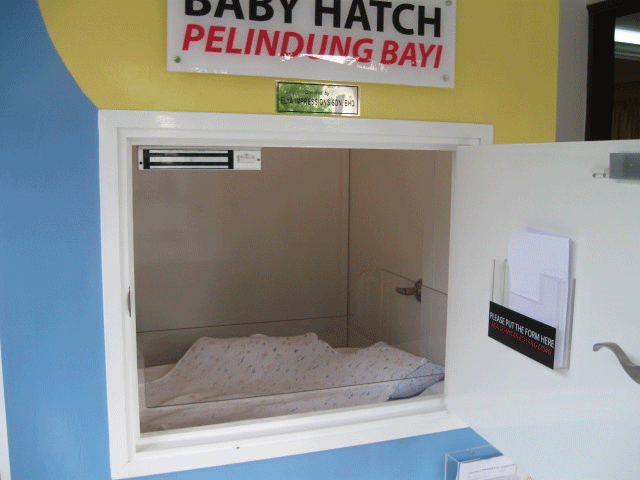
Experience:-
1976-1980: Chairman, GW Grace Corp. (US)
1981-1982: Chairman, Golden Bridge Inc.
1982 to date: Chairman, Gi Consulting Corp.
1988-1995: Chairman, World Plaza Corp.
1998-2000: Chairman, World Consulting Corp.
2000 to date: Chairman, World Invest Partners Corp.
2001-2004: Chairman, Korean Fiji Friendship Association
2004-2011: Chairman, My Asset Investment Management Ltd.
2011 to date: Advisor, My Asset Investment Management Ltd.
2001 to date: Chairman, Han Yang Rotary Club Community Service
2001 to date: Researcher, Human Development Institute
2001 to date: Director, Pyongyang Intelligence Communication University
2007-2008: Chairman, Women News Corp.
2008-2010: Chairman, Korea University Global Business MBA Alumni Association
2008 to date: Vice Chairman, Korea University Businessman’s Association
2008 to date: President, Korean Council for South and North Korea Balance Development Cooperation
2008 to date: President, Korean Council for Reconciliation and Cooperation
2009-2013: Vice Chairman, Korea University Alumni Association Council
2009 to date: Director, Korean China Cultural Society
2009 to date: Director, Korean Distribution and Logistics Policy Association
2009 to date: Director, The Korean Future Foundation
2010 to date: Director, Korea University Global Business MBA Alumni
Association
2012 to date: Director, Asia Today
2013-2014: Chairman, Han Yang Rotary Club
2014: Management consultant, MBC Arts Management Advisory Committee
Honors:-
2009: MBC Community Service Grand Prize
2009: Korea University Thirtieth Anniversary Entrepreneurs Award
2010: Yonsei University Congeniality Award
2012: Korea Cultural Grand Prize
